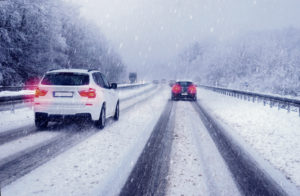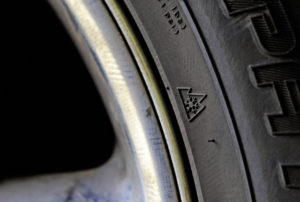 It won’t be long before drivers in the Rheinland-Pfalz area will be dealing with snow, ice, high winds and less experienced winter drivers. Winter is coming, and the U.S. Army Garrison Rheinland-Pfalz Safety Office wants to help motorists avoid the normal “Winter Blahs” associated with driving.
It won’t be long before drivers in the Rheinland-Pfalz area will be dealing with snow, ice, high winds and less experienced winter drivers. Winter is coming, and the U.S. Army Garrison Rheinland-Pfalz Safety Office wants to help motorists avoid the normal “Winter Blahs” associated with driving.
The No. 1 driving tip the safety office gives is simple: slow down.
“We get used to driving on the autobahns and back roads at certain speeds when the weather is good and we fail to reduce that speed when the weather gets bad,” said Leah Holly, garrison chief of safety. “That gets us in trouble. In some cases, Americans may not be used to driving in winter conditions and they see the host nation drivers going faster and they try to keep up and get into trouble.”
Holly said driving safely begins before the key is in the ignition. Drivers need to decide if the trip is really necessary or if it can wait until the storm is over and roads are cleared.
“You have to decide if you feel safe driving in the current weather,” said Holly. “If you don’t think it’s safe for you to drive to work, call your supervisor.”
Just as important is to clean off the vehicle completely, including windows, mirrors and lights. Also, clean snow off of the hood, top and trunk so it doesn’t fly off and cause an accident for someone else.
“It starts with an ice scraper,” Holly said. “Other things you might want to have are a small snow shovel, salt or kitty litter, windshield washer that is good below freezing, maybe some extra clothes, a blanket, gloves and other warm apparel in case you get off the road and your car is disabled.”
Proper tires are a hot topic in the cold months. When there is black ice, snow, slush, ice or frost on the roads, German law requires all vehicles, including those with four-wheel drive, to have clearly marked winter or all-season tires.

“You have to look for the alpine symbol on the tire. If you buy new winter tires, they are required by law to have that snowflake inside a mountain symbol,” said Herb Nold, safety officer, adding not having proper winter tires could result in a €60 fine.
Regardless of how many safety measures are taken, accidents still occur. When they do, military police are called. All drivers whose vehicles are registered within the military system must remain at the scene while the military police take information and conduct their initial investigation. While they do, all parties should get to a safe spot over the barriers or away from the road.
“If you are in an accident, try to get your vehicle to the side of the road. Then, get yourself and passengers over the barrier,” said Nold. “If the accident is in the left lane, try to get between the middle dividers. Unfortunately, it’s common for a disabled car to be hit from behind. But you must be very careful when getting out of the vehicle and getting to safety.”
Above all, garrison leaders say to use common sense.
“Bottom line: Plan ahead and be prepared,” said Col. Vance Klosinski, USAG RP commander. “Also, remain cautious and alert on the roads. We do not want to lose any Soldier, family member, Army professional or member of the host nation to a preventable accident. Do not drive above the safety of the road conditions.”


